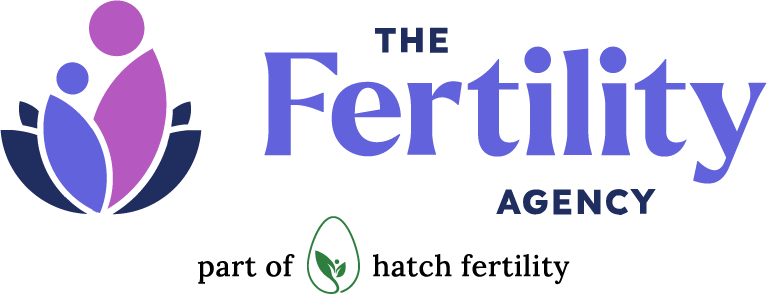Egg donors help to make someone’s dream come true. But to make that happen, the top egg donation agencies only accept the best eggs, because healthier eggs and surrogate mothers often lead to better success rates. Top clinics have higher success rates because egg donors must meet certain qualifications.
One of the most notable (and important) qualifications for egg donors is that the woman must be between the ages of 18 to 30 years old.* Why? Age has a huge impact on a woman’s eggs.
As we journey through life, our bodies undergo natural changes, and these changes have a significant impact on fertility. For women considering egg donation, understanding the effects of age on the health and viability of their eggs is crucial.
What’s Age Got to Do With It?
The Aging Process and Egg Viability
It’s no secret that aging affects all aspects of our bodies, and the reproductive system is no exception. As women age, their egg quantity and quality decline. Natural aging impacts the health and viability of a woman’s eggs through a:
- Decline in egg quantity: A woman is born with a finite number of eggs, and that amount steadily declines throughout her life. At birth, a baby girl has approximately one to two million eggs, according to the American Society for Reproductive Medicine. By the time she reaches puberty, this number decreases to around 300,000 to 500,000 eggs. By the age of 30, she has about 10% of her original egg reserve, and by the age of 40, this number further diminishes to approximately 3%. The decreasing egg quantity over time means that there are fewer eggs available for fertilization, which can make egg donation more challenging.
- Reduction in egg quality: Not only does the quantity of eggs decrease as women grow older, but the quality also declines. As eggs age, they become more susceptible to chromosomal abnormalities, which can lead to genetic disorders or failed fertilization. This decline in egg quality is one of the main reasons why fertility decreases with age.
Factors Contributing to Decreased Egg Health
Several factors contribute to the diminished health of a woman’s eggs as she gets older, including:
- Advanced maternal age: As we’ve mentioned already, maternal age matters when it comes to egg health. Studies have shown that the chances of chromosomal abnormalities in eggs increase with age. For example, at the age of 35, the risk of having a baby with Down syndrome is about 1 in 350, while at 45, the risk increases to 1 in 30.
- Oxidative stress: As women age, their bodies may experience more oxidative stress, which can negatively impact the health of their eggs. Oxidative stress happens when there’s an imbalance between free radicals and antioxidants in the body. This imbalance can lead to cellular damage, affecting egg quality and viability.
- Lifestyle factors: Lifestyle choices, such as smoking, excessive alcohol consumption, poor diet, and sedentary behavior can also contribute to decreased egg health over time. These factors can increase oxidative stress and negatively impact overall fertility.
Understanding the Impact of Age for Egg Donation
When it comes to egg donation, age is an essential consideration for both donors and surrogates. Here’s why:
- Egg donors: Younger egg donors, typically between the ages of 21 and 30, have a higher chance of producing healthier and more viable eggs. As noted above, their eggs are less likely to have chromosomal abnormalities, increasing the chances of successful fertilization and healthy embryo development.
- Intended parents: For intended parents who get to choose an egg donor, younger donors can significantly increase the chances of a successful pregnancy, increasing the odds of a successful gestational surrogacy experience.
The age requirement for egg donors is just one component on an extensive list of criteria — but it’s an essential one. Age plays a vital role in the health and viability of a woman’s eggs. Advanced maternal age, oxidative stress, and lifestyle factors all contribute to decreased egg health over time. And with healthy eggs comes better chances of a healthy baby.
*Note: there are some exceptions to our 18-30 age requirement and we will consider some egg donors over the age of 30. In most cases, those we accept over age 30 have been a successful egg donor in the past or have unique qualifications. If unsure, please ask us.
Egg Donor and Surrogacy Services
Since 2004, The Fertility Agency has helped bring over 1100+ babies into the world. We work with all intended parents, surrogates, and egg donors no matter their sexual preference, relationship status, ethnicity, location, etc. Our personal experiences and years of expertise provide us with the perfect balance of business and passion.

